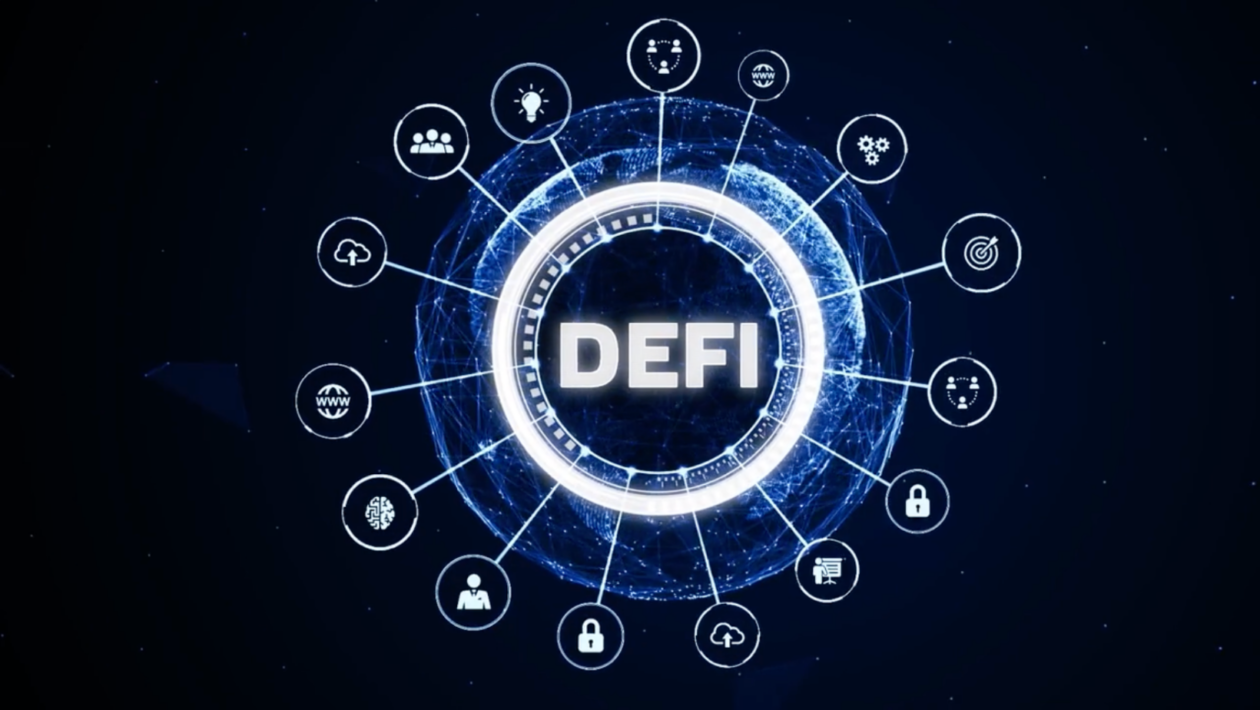Decentralized Finance (DeFi) is revolutionizing the financial world by utilizing blockchain technology to create a more transparent, accessible, and secure financial system. This blog post explores what DeFi is, its fundamental components, the advantages it offers, popular DeFi applications, and its potential future developments and risks.
What is DeFi?
Decentralized Finance, or DeFi, refers to a financial system built on blockchain technology that operates without intermediaries such as banks and financial institutions. By leveraging cryptocurrencies and smart contracts, DeFi aims to replicate and improve upon traditional financial systems, making financial services more accessible and efficient.
Comparison with Traditional Financial Systems
Traditional financial systems are controlled by centralized authorities like banks, which manage and facilitate transactions. These systems often involve high fees, lengthy transaction times, and limited access for individuals in underbanked regions. In contrast, DeFi eliminates intermediaries, allowing for direct peer-to-peer transactions that are faster, cheaper, and more inclusive.
Key Components of DeFi
Smart Contracts
Smart contracts are self-executing contracts with the terms of the agreement directly written into code. They run on blockchain platforms like Ethereum and automatically execute transactions when predefined conditions are met, ensuring trust and transparency without the need for a central authority.
Decentralized Exchanges (DEX)
Decentralized exchanges (DEX) enable users to trade cryptocurrencies directly with one another without relying on a centralized exchange. DEXs operate on smart contracts, allowing for secure and transparent transactions without intermediaries.
Liquidity Pools
Liquidity pools aggregate funds from multiple investors, which are then used to facilitate trading on DEXs. These pools provide the liquidity needed for seamless trading and allow liquidity providers to earn transaction fees and rewards.
Advantages of DeFi
Transparency and Security
DeFi platforms offer high levels of transparency and security thanks to blockchain technology. All transactions are recorded on a public ledger, making them easily auditable and resistant to tampering or censorship.
Global Accessibility
DeFi provides financial services to anyone with an internet connection, regardless of their geographic location. This inclusivity is especially beneficial for people in regions with limited access to traditional banking services.
Financial Freedom and Control
DeFi gives users full control over their assets, eliminating the need for intermediaries. Users can manage their finances independently, reducing reliance on centralized institutions and increasing financial autonomy.
Popular DeFi Applications and Projects
Uniswap, Aave, and Compound
Uniswap is a leading DEX that allows users to swap various cryptocurrencies directly. Aave is a decentralized lending platform where users can borrow and lend cryptocurrencies, earning interest on their deposits. Compound also enables borrowing and lending, with a focus on providing liquidity to various markets.
Use Cases and Success Stories
DeFi projects have achieved significant success, with platforms like Uniswap surpassing the trading volumes of some centralized exchanges. Aave and Compound have facilitated billions of dollars in loans, showcasing the growing adoption and potential of DeFi in revolutionizing finance.
The Future of DeFi and Potential Risks
Future Developments
The future of DeFi looks promising, with ongoing advancements in blockchain technology expected to bring more sophisticated financial products and services. The integration of DeFi with traditional finance could also lead to a more inclusive and efficient financial ecosystem.
Regulations and Security Concerns
Despite its potential, DeFi faces challenges related to regulation and security. The lack of regulatory oversight can lead to vulnerabilities and risks, such as smart contract bugs and hacks. As the DeFi ecosystem grows, addressing these challenges will be crucial to ensure its sustainability and trustworthiness.
Conclusion
Decentralized Finance (DeFi) represents a groundbreaking shift in the financial landscape, offering transparency, accessibility, and control that traditional systems cannot match. While DeFi presents numerous opportunities, it also comes with its own set of risks and challenges. Staying informed and cautious is key for users looking to participate in this innovative financial ecosystem.
For more detailed analysis and insights, visit Budget Galaxy.





